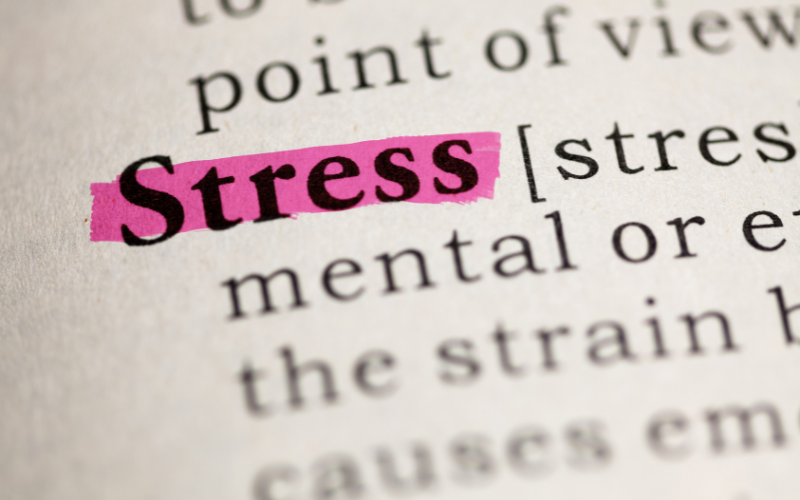Cortisol, a hormone produced by the adrenal gland in response to stress, is a vital component of our body’s stress response system. But what happens when cortisol levels become disrupted? A cascade of negative effects can ensue, undermining our physical and mental well-being. In this article, we delve into the intricacies of cortisol and its role in our bodies, examining both its positive and negative effects and how we can keep cortisol levels in check.
Functions of Cortisol
Cortisol, often referred to as the “stress hormone,” is triggered by stress and has numerous crucial functions within our bodies. It regulates the immune system, ensures proper blood sugar levels, and maintains blood pressure, while also serving to regulate metabolism and providing a burst of energy in times of stress. But cortisol’s role in our bodies is not limited to these functions alone.
Effects of Cortisol on the Body
Balanced cortisol levels are crucial to maintaining our health, as they help regulate our stress response and promote overall wellness. However, imbalanced cortisol levels can wreak havoc on our bodies, causing an array of negative effects, such as:
- Increased blood pressure
- Decreased immune function
- Impaired memory and concentration
- Decreased bone density
- Increased abdominal fat
- Decreased muscle mass

How Cortisol Levels Become Imbalanced
Cortisol levels can become imbalanced due to various factors, including chronic stress, poor diet, lack of exercise, and sleep disturbances. Additionally, certain medical conditions, such as Cushing’s syndrome, can cause cortisol levels to become imbalanced.
Understanding the Connection between Cortisol and Stress
Stress is an inescapable aspect of life, and it prompts cortisol to be released in the body. This hormone provides a sudden burst of energy to help us tackle stressful situations. Nevertheless, when stress becomes chronic, cortisol production goes into overdrive, leading to imbalanced cortisol levels.
The Importance of Balancing Cortisol Levels
When it comes to preserving one’s physical and mental health, the balance of cortisol levels is crucial. This hormone, which regulates the body’s stress response, can have both positive and negative effects when not kept in check. Understanding the importance of cortisol balance and recognizing the signs of cortisol imbalance is key to maintaining overall well-being.
How to Recognize the Signs of Imbalanced Cortisol Levels
In order to intervene and regulate cortisol levels, it is imperative to recognize the telltale signs of cortisol imbalance. Some of the signs of imbalanced cortisol levels include:
- Fatigue
- Insomnia
- Anxiety
- Depression
- Irritability
- Weight gain, especially in the abdominal area
- Muscle weakness
Ways to Manage Cortisol Levels
Fortunately, there are several strategies for managing cortisol levels and improving overall health:
- regular exercise
- stress management techniques such as meditation and yoga
- a balanced diet rich in fruits, vegetables, and whole grains, adequate sleep
- the use of supplements such as magnesium and B-complex vitamins
FAQs
Does quitting coffee lower cortisol?
Quitting coffee can potentially lower cortisol levels. Caffeine, which is present in coffee, is a stimulant that can increase cortisol levels in the body. By quitting coffee, individuals may experience a decrease in cortisol levels. However, it is important to note that the effects of quitting coffee on cortisol levels can vary based on individual differences and other lifestyle factors.
What foods trigger cortisol?
The food we eat can have an impact on cortisol levels. Consuming high-sugar and high-fat foods can trigger the release of cortisol in the body. Additionally, skipping meals or having irregular eating patterns can also lead to cortisol imbalances.
Does cortisol release during exercise?
Yes, as the heart rate quickens and the body begins to sweat, a surge of cortisol surges through the bloodstream during exercise, offering a sudden burst of energy while regulating sugar levels in the blood. To maintain a harmonious balance of cortisol in the body, it is imperative to engage in physical activity of moderate intensity, with a minimum duration of 30 minutes, on a regular basis throughout the week. This not only benefits cortisol levels but also fosters comprehensive physical and mental wellness.

Let’s recap
Balancing cortisol levels is a complex and multi-faceted process that requires a combination of strategies to achieve success. By recognizing the signs of cortisol imbalance and utilizing a range of techniques to manage cortisol levels, individuals can improve their overall health and well-being.



